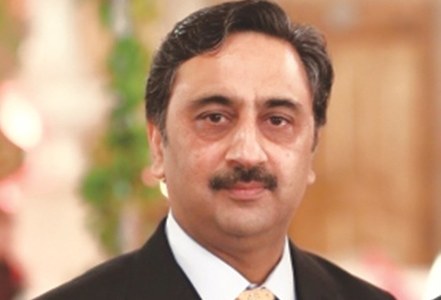ISLAMABAD: The government sees no imminent threat to the World Bank-brokered Indus Waters Treaty (IWT) despite tense relations with India.
“India is engaging in posturing otherwise we do not see any imminent threat of repudiation of the Treaty,” Minister for Water and Power Khawaja Asif, who also holds the defence portfolio, told a Senate panel comprising all members of the upper house of parliament.
The panel chaired by Senate Chairman Raza Rabbani had been specially constituted to recommend guidelines to the government in the light of what was described as ‘emerging regional realities’.
The water and power minister’s statement stood in sharp contrast to concerns in Islamabad during the past few months over Delhi’s cryptic warning in the aftermath of the Uri military camp attack that it could consider revoking the 56-year-old accord. Adviser to the PM on Foreign Affairs Sartaj Aziz had then responded by warning that revocation of IWT would be treated as “an act of war”. Pakistan’s ambassador to the UN Dr Maleeha Lodhi had, meanwhile, denounced India’s use of water as an “instrument of coercion and war”.
Last month the Indian govt set up a high-level task force to look into the ‘strategic aspects’ of the IWT and explore options for maximum utilisation
The Indian government last month set up a high-level task force for looking into the ‘strategic aspects’ of IWT and exploring options for maximum utilisation of the waters of the three rivers allocated to Pakistan under IWT — Indus, Jhelum, and Chenab.
Mr Asif believed that the Indian statements were motivated by domestic compulsions.
Recalling Prime Minister Narendra Modi’s statement about stopping “every drop of water (from the eastern rivers Ravi, Sutlej and Beas)”, Mr Asif dismissed it as political hot air. “These rivers are already with them,” he maintained.
He clarified that not all of Pakistan’s water was coming from the territory under Indian control and a major portion was from local sources with the Kabul and Swat rivers also contributing significantly.
“We have got enough water. If we put our house in order, it would matter little whether or not the treaty remains,” Mr Asif said adding almost in the same breath that, nevertheless, it was better that IWT remained intact.
The minister, however, did not directly talk about the Indian plans for exploiting the waters of the three western rivers by building new storages and hydro-power projects.
Mr Asif, replying to a question, said “empirical evidence does not suggest that Indians can have large storage facilities” on the western rivers.
“They have already made three run-of-the-river hydropower projects on the Jhelum and two on the Chenab. All of these are run-of-the-river projects and the water ultimately comes to us, it does not stop there. They did not make any reservoirs,” he asserted and said that even in Kishanganga’s case, in which Pakistan had unsuccessfully pleaded that the water was being diverted, the water went to the Wullar Lake and came back in the Jhelum.
The minister cautioned that India was nudging Afghanistan to raise issues on Pakistan’s use of water from the Kabul River. He said the European Union ambassador had alerted him to the Indian design.
The Senate panel concluded the day’s proceeding with a resolution calling on the World Bank to fulfil its obligations in terms of IWT.
Published in Dawn, January 18th, 2017














































